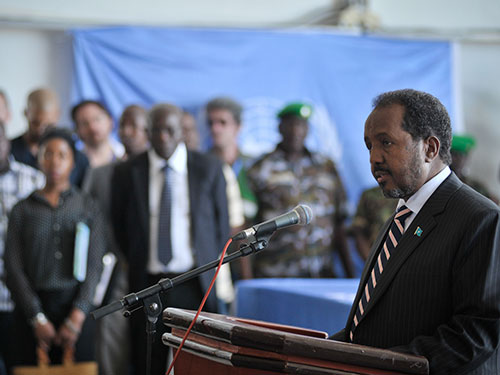
This interview was originally published by IPI Global Observatory on 25 November, 2015.
Recent pushback against Al-Shabaab extremists and a partial easing of tensions between central and state governments have increased hopes for a stable democratic future in Somalia, as it continues to recover from the civil war of the 1990s and 2000s.
Nonetheless, Professor Ken Menkhaus of Davidson College—an expert on the country’s ongoing political transition—said much work was required to recapture momentum from the 2012 establishment of a new federal government, which brought in new political and security expertise, international support, and financial investment. “Finishing a lot of transitional tasks left from the pre-2012 era is essential if the country is to move forward: to have a constitution; to have full elections,” he told International Peace Institute (IPI) Senior Adviser John Hirsch, at a recent IPI forum on 21st century peacebuilding. “Since then, a number of things have not gone terribly well. We’ve seen a prolonged period of political paralysis in the government, with a lot of in-house fighting,” Dr. Menkhaus said. He said the international community was deeply involved in Somalia, providing development and military aid, as well as applying pressure on the country’s leaders to continue their transitional tasks. This includes pushing for an election on a new head of state and a referendum on a new constitution, which had been expected next year. This interview has been edited for clarity and length.
